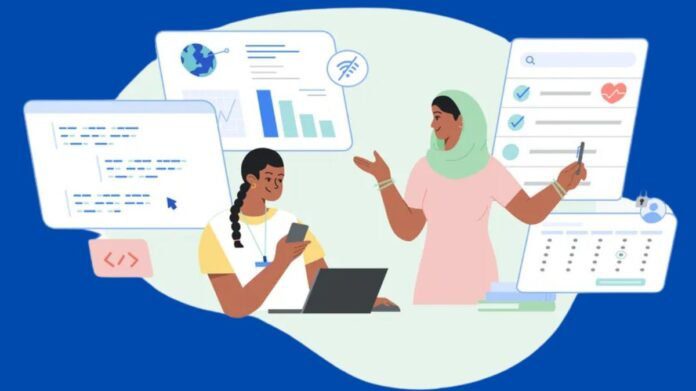Google Open Health Stack is assisting developers in addressing healthcare shortages in five ways. Developers may use these open-source technologies to produce digital health solutions for low-resource environments worldwide.
Open Health Stack
Despite the fact that over half of the world’s population lacks access to basic health services, mobile-based solutions have shown promise in filling care gaps. In order to solve a typical set of issues developers encounter in the context of global health, the developers introduced Open Health Stack (OHS) in 2023.
OHS facilitates the adoption of contemporary digital healthcare standards and the creation of next-generation digital health solutions, saving developers’ time and effort worldwide. Healthcare professionals may employ these safe, offline-capable products in environments with limited resources where connectivity may be an issue.
Since the start, there has been significant action to help the worldwide network of digital health professionals and improve underprivileged environments. In various parts of Africa, South Asia, and Southeast Asia, one can have supported the implementation of OHS-powered health solutions and collaborated with more than 20 early adopter partners.
Currently working with Google Open Health Stack(OHS) to support digital health developers globally in the following five ways:
Assisting developers in creating mobile health apps more quickly and gaining insights
Using OHS, developers have produced useful digital health systems, some of which provide healthcare decision makers with data insights and analytics. For instance, Ona develops applications that enable medical professionals to switch from paper-based records to electronic ones. Google Open Health Stack(OHS) expedited the development of Ona’s app and enabled them to include interoperable data standards (such as HL7 FHIR), which supervisors and healthcare professionals utilized to improve treatment in underprivileged areas.
In a similar vein, mPower and ITECH-DIGI enhanced their healthcare solutions by utilising OHS technologies. ITECH-DIGI employed the analytics tools for data visualization and decision-making insights in their electronic medical records system, while mPower used them to speed up development and scalability for improved service quality in Bangladesh.
Working together to promote and disseminate best practices in digital healthcare
Google Open Health Stack(OHS) has played a significant role in increasing developers’ awareness and understanding of open technologies and interoperability standards in the global health community. Most recently, from December 1–3, 2024, the developers hosted the first Open Digital Health Summit in collaboration with the WHO and a network of partners. Over 300 developers and technical architects from 45 nations came together for the Summit to assist fill the knowledge and skill gaps needed to speed up the standards-based digital transformation of the health sector.
Using immersive workshops to improve the abilities of digital health developers
It have led hundreds of developers through a number of OHS seminars throughout the world. In order to teach IT students and aspiring innovators the fundamental ideas and resources needed to create digital health apps, people first partnered with Kabarak University in Kenya to conduct boot camps. And in India, everyone held a developer-focused workshop to give practical coding and building workshops on OHS components at the biggest digital health conference in the nation.
Examining novel AI skills
Google Open Health Stack(OHS) offers the fundamental technological framework for digital health solutions, but developers may also take advantage of AI-based capabilities. To make it easier for developers to create AI models for healthcare applications, Google has already made a set of open weight models, called Health AI Developer Foundations, available. In order to construct the enabling architecture that will facilitate the development of AI-powered products in the near future, the OHS team is also collaborating with the developer community to better understand their needs.
Fostering a Community for OHS
To help developers work more quickly and safely, the addition of new technical features to OHS based on input from a vibrant worldwide developer community regarding their needs. In order to make it easier for developers to begin building on OHS, the developers have also recently released tools such as an instructional video series.
Google Open Health Stack(OHS) has always been a communal effort, to honor the several developers who have contributed to its success. Working together on an open-source platform that fosters creativity and increases the accessibility of health data for improved patient outcomes is motivating.
Also are eager to keep collaborating with partners and the global digital health ecosystem in order to increase the OHS footprint worldwide to move beyond 2025. The overall goal with OHS is to lower the obstacles that developers and innovators must overcome in order to create cutting-edge digital health solutions and enhance care for everyone.


